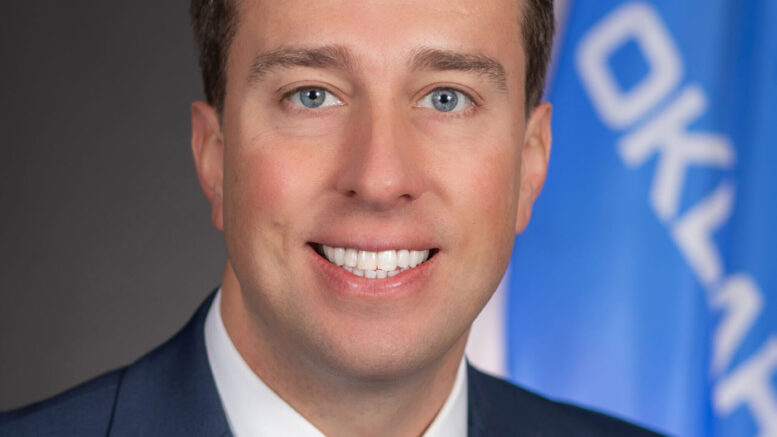OKLAHOMA CITY – Rep. Collin Duel, R-Guthrie, recently led an interim study examining the Oklahoma Foreign Agent Registration Act (FARA) and the Oklahoma Foreign Adversary Divestment Act (FADA).
IS24-060 was held before the House State Powers Committee.
The interim studies’ purpose was to analyze the effectiveness of current federal and state laws in addressing foreign adversary activities within Oklahoma, focusing on the Foreign Agent Registration Act of 2025 and the Foreign Adversary Divestment Act.
Alex Gray, Chief Executive Officer of American Global Strategies LLC and former Chief of Staff to the National Security Council, opened the interim study, stating that America’s adversaries are actively seeking to bring conflict to U.S. soil.
“The Chinese Communist Party views our states and localities as less prepared to resist Chinese Communist Party aggression than the U.S. at the federal level,” Gray said. “So, taking these steps now to harden ourselves at the state and local level is a critical part of deterring a future conflict.”
Frances Hui, policy and advocacy coordinator at the Committee for Freedom in Hong Kong Foundation, who was the first Hong Kong activist to secure asylum in the United States, spoke about personal accounts as a target of transnational repression carried out by Beijing.
“I always find it important to remind Americans and people living in democracies: freedom is not free,” Hui said. “It’s something that requires fighting for and continuously defending.”
Matthew du Mee, Partner at Fusion Law, provided an overview of FARA, which is intended to protect U.S. national security by requiring enhanced transparency into the activities of organizations operating in the U.S. on behalf of foreign adversaries.
The study highlighted three main issues with FARA: lobbyists, commercial activity, and academic research are often exempt. As a result, adversary espionage and influence campaigns can operate relatively unhindered across the U.S. through these loopholes.
Organizations such as TikTok, the drone manufacturer DJI, and others with ties to China have been allowed to operate without FARA registration despite being recognized as foreign-controlled entities.
Michael Lucci, founder and CEO of State Armor, wrapped up the section on FARA, providing future considerations at the state level that would differ from the federal level.
Lucci’s considerations included adversary national application, removing academic, commercial, and lobbying loopholes, looking back at accountability, and a state proposal with civil-only penalties.
Duel then had Lucci provide a brief overview of FADA. FADA’s purpose is to divest assets in the People’s Republic of China to maintain compliance with fiduciary duty.
“There are moral, national security reasons, but I think that the closing argument on holding Chinese assets is really fiduciary at this point,” Lucci said. “The fiduciary argument, I believe, would be to get out now.”
Investments in Chinese assets have long carried moral risks; for example, pension dollars have funded human rights abuses and China’s military buildup.
Indiana, Florida, Kansas, Missouri, Tennessee, Pennsylvania, Texas and other states have divested some or all their PRC assets. Sweden also recently divested its public pensions from China.
“This is really an accelerating trend that we’re seeing with the state, the federal government, and American allies,” Lucci said.
Other speakers include Dr. Jacqueline, founder and CEO of Long-Term Strategy Group and Ambassador Kelley Currie, Founder of Kilo Alpha Strategies, and former U.S. Ambassador to the U.N. Commission on Women’s Rights.
Duel thanked everyone for attending and presenting at the interim study.
“All the information provided is extremely valuable,” Duel said. “I look forward to seeing what we can do as the state of Oklahoma in order to help prepare ourselves for a threat from the CCP. “




Be the first to comment on "State Rep. Duel examines state-level responses to foreign adversary influence"